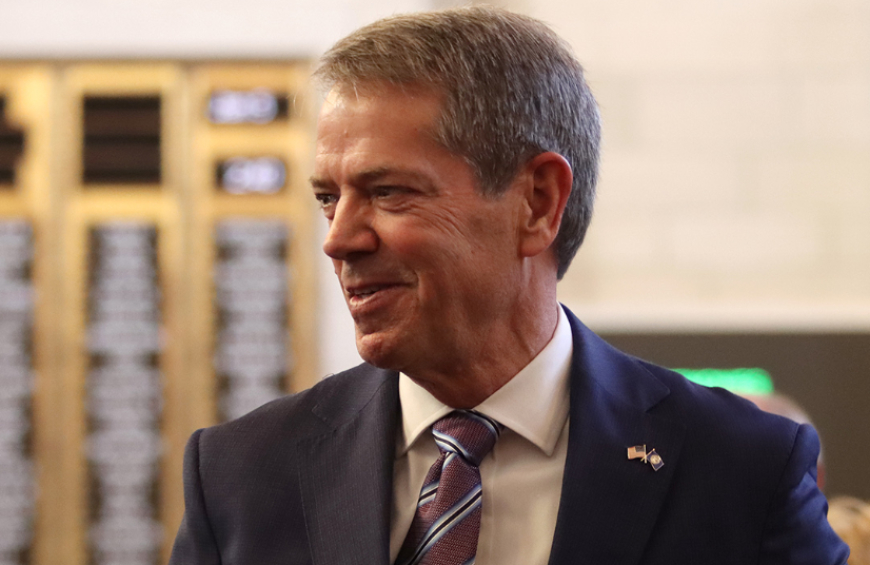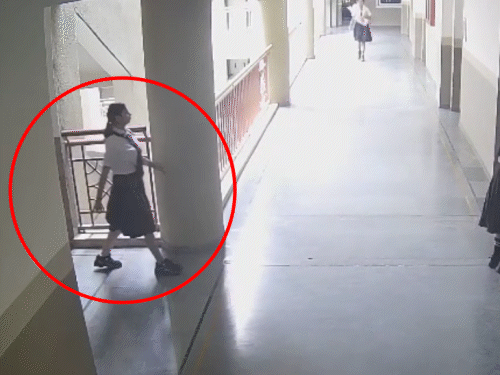Nebraska Governor Jim Pillen Unveils New Immigration Detention Plans, Echoing Trump-Era Strategy
Nebraska Governor Jim Pillen announces plans for a new immigration detention center in McCook, aligning with Trump’s immigration agenda. The move sparks both support and protests.

Nebraska is stepping directly into the national immigration debate. On Tuesday, August 19, 2025, Republican Governor Jim Pillen revealed a controversial plan to transform an existing state correctional facility in McCook, southwest Nebraska, into a new federal immigration detention center.
The project, nicknamed the “Cornhusker Clink” by officials, is designed to house up to 200 detainees initially, with expansion plans for nearly 300 beds. The move closely aligns with the Trump administration’s broader detention expansion policy, which has set a goal of adding tens of thousands of new detention beds across the United States.
Why Nebraska?
The McCook facility, officially known as the Work Ethic Camp, currently holds state inmates. Under the governor’s plan, these individuals will be relocated, making room for federal detainees awaiting immigration proceedings.
Governor Pillen argued that the decision reflects Nebraska’s responsibility to “stand shoulder to shoulder with national security efforts.” He stressed that the facility will improve public safety and strengthen cooperation with federal immigration authorities.
Homeland Security Secretary Kristi Noem, standing alongside Pillen at the announcement, echoed that message, calling the plan “a model for other states” and emphasizing the need to detain and deport what she described as “the worst of the worst.”
Support and Opposition
The initiative has quickly divided Nebraskans. Supporters say it will bring jobs and federal investment to rural Nebraska, while helping the state play a more active role in enforcing immigration laws.
However, critics see it differently. Protesters gathered outside Pillen’s press conference, holding signs that read “ICE is not welcome here” and calling the detention strategy inhumane. State Senator Megan Hunt criticized the branding of the facility, arguing that the term “Cornhusker”—a beloved state symbol—should not be linked to incarceration.
Even the University of Nebraska, which owns trademarks connected to the “Cornhuskers,” issued a statement distancing itself from the project, saying no permission was given to use the name.
A Step in Line with Trump’s Immigration Agenda
The Nebraska plan is one of several new detention sites being announced across the country as part of President Donald Trump’s renewed focus on immigration enforcement. Similar facilities are being built or expanded in states like Florida and Indiana, with the federal government funding a dramatic increase in capacity.
According to AP News, the Department of Homeland Security has signed a three-year agreement with Nebraska for the McCook site, marking it as one of the first state-run facilities to be fully integrated into ICE’s new detention strategy.
Immigration rights groups warn that the move could fuel legal battles. Organizations such as the ACLU have already hinted that Nebraska may face lawsuits over detainee rights, transparency, and due process.
What Comes Next
-
Transfer of current inmates: More than 180 state inmates housed at McCook will be relocated to other Nebraska prisons in the coming months.
-
Staffing and security: The Nebraska National Guard will provide administrative support, while the State Patrol is expected to assist ICE in detaining and transporting immigrants.
-
Federal funding: The deal ensures federal money flows into the region, providing operational costs and potential jobs for local residents.
For Governor Pillen, the project is not just about detention space—it’s about signaling Nebraska’s support for Trump’s national immigration strategy.
But as The Washington Post reported, the backlash from local communities, university leaders, and immigrant advocates suggests this battle is far from over.
Conclusion
Nebraska’s new immigration detention center illustrates how deeply state politics are now tied to national immigration policy. While the Cornhusker Clink may bring jobs and federal funding to rural Nebraska, it also raises significant questions about civil liberties, community identity, and the long-term direction of U.S. immigration enforcement.
As the facility prepares to open in the coming months, Nebraska finds itself at the center of a national showdown over immigration, security, and human rights.
What's Your Reaction?
 Like
0
Like
0
 Dislike
0
Dislike
0
 Love
0
Love
0
 Funny
0
Funny
0
 Angry
0
Angry
0
 Sad
0
Sad
0
 Wow
0
Wow
0






































































